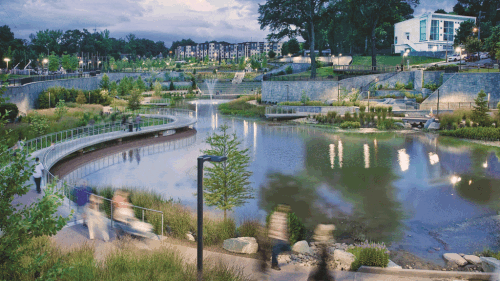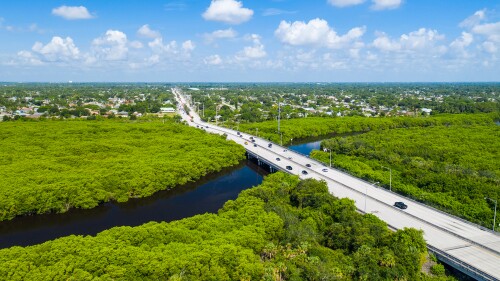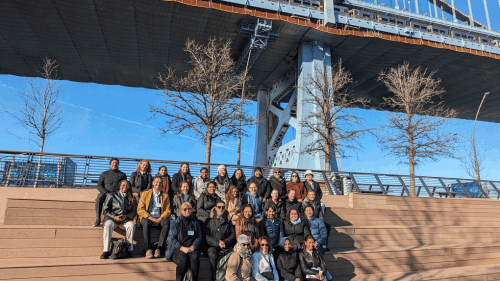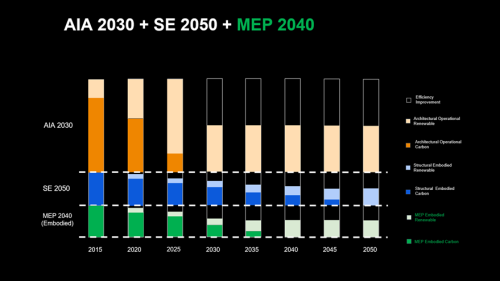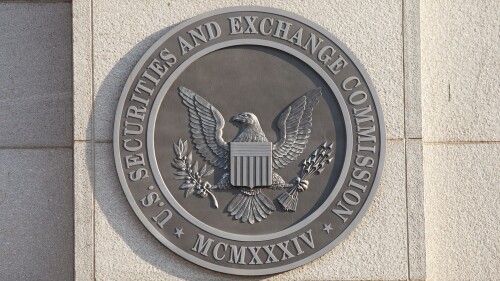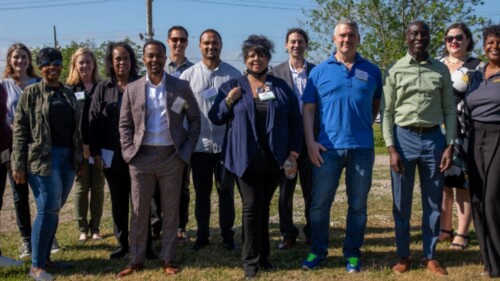Resilience and Sustainability
Drive resilient, sustainable development with ULI’s insights, tools, and leadership shaping climate-ready, low-carbon, equitable built environments.
City is actively working to make its neighborhoods safer and more resilient to extreme rain events
When cities decline, they can take decades to recover, if they ever do. McKinsey’s research suggests that many U.S. cities could experience a steady downward trajectory without effective intervention. We find that some cities may take years to bounce back from the impact of the COVID-19 pandemic on real estate and the economy. But such a doom loop is far from inevitable; there are many examples of success that we can learn from. Indeed, while U.S. cities will differ from what they were before COVID-19, this is also an opportunity to shape them into more vibrant and equitable places.
Federal funding opportunities through the Bipartisan Infrastructure Law (BIL) and Inflation Reduction Act (IRA) are supporting essential investments in green and resilient infrastructure, with the potential to create more livable communities while also supporting successful real estate developments through enhanced aesthetics, improved building user experiences, and operational efficiencies.
Since 2017, the ULI Health Leaders Network has served as a platform for cross-sector professionals looking to grow their leadership skills, make meaningful connections, and drive progress in health and social equity. Welcoming thirty new members to the Network, Cohort 7 joins a global community of practice of over 200 professionals. Spanning 24 cities and 6 different countries, the new cohort represents a diverse range of real estate, land use, design, policy, and public health professionals. To learn more about the individual Cohort 7 members, explore their profiles and biographies here.
Construction codes are pushing new buildings toward net zero, but roughly 80 percent of the expected 2050 building stock already exists today and needs to undertake major upgrades to meet emissions limits in line with the Paris Agreement. To address this issue, cities and states across the U.S. have started to limit emissions from existing buildings with regulations known as Building Performance Standards (BPS).
Holcim Foundation is equipping the next generation of building practitioners to become impactful voices of change.
ULI Joins MEP 2040 Including Mechanical, Electrical, and Plumbing Systems in the Journey to Net Zero
ULI is proud to announce that we have joined MEP 2040 as a supporting organization. MEP 2040 is a movement to radically reduce total carbon emissions associated with Mechanical, Electrical, and Plumbing (MEP) systems through collective action. “The embodied carbon associated with MEP systems is a burgeoning topic in real estate ESG. ULI is proud to support MEP2040 in its efforts to radically reduce total carbon emissions associated with building systems. We applaud the work of MEP engineering and design firms who have made the MEP2040 commitment and urge the broader industry to join the movement and advance real estate’s journey to net zero,” said Marta Schantz, co-executive director of ULI’s Randall Lewis Center for Sustainability in Real Estate.
Last week, the U.S. Securities and Exchange Commission issued new rules requiring public companies to enhance and standardize climate-related disclosures. The rules phase in over time, requiring the largest companies or public investor shares to begin making climate risk disclosures in 2025.
Arizona is at the epicenter of an evolving dynamic that can best be described with a phrase uttered by a panelist at ULI Arizona’s Trends Day 2024—disruption equals opportunity.
Since 2022, five ULI district councils—ULI Colorado, ULI Los Angeles, ULI New York, ULI Louisiana, and ULI Philadelphia—have participated in a long-term effort to tackle climate resilience, equity, and land use issues through the second Resilient Land Use Cohort (RLUC2), hosted by ULI’s Urban Resilience program.

